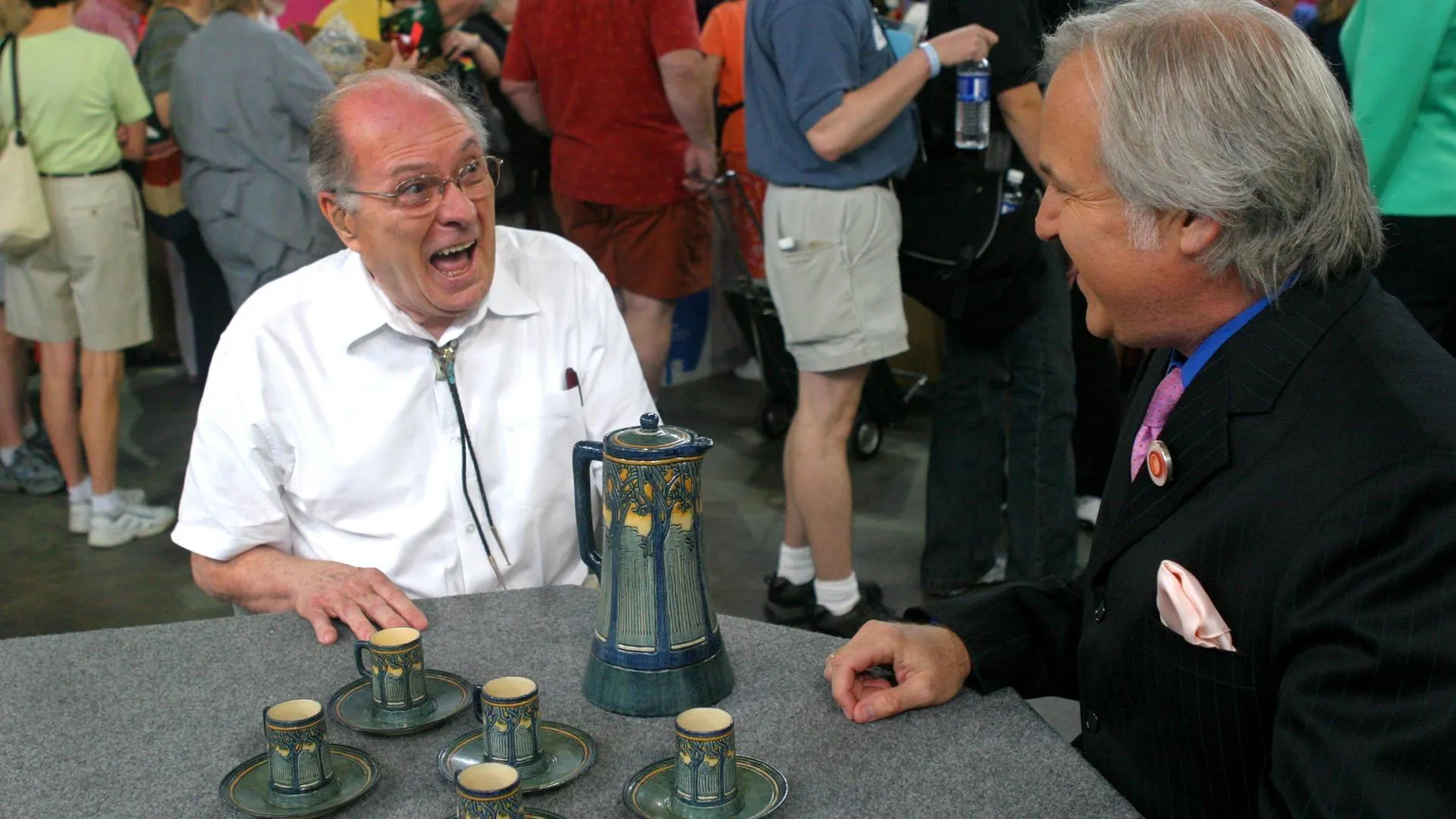GUEST: I inherited it from my mother-in-law, who inherited it from many generations on her side of the family. Her family is from the Boston area.
APPRAISER: Well, the Boston area would explain a lot, because this was made in Boston in the 18th century. It's by a very famous Boston silversmith called Jacob Hurd. There was a whole dynasty of silversmiths of that name in Boston. He was working in the 1740s and '50s. This is actually a typical Boston cann. Funny enough, the Old English word "cann"-- C-A-N-N-- has continued in usage in America to describe a silver mug like this. It's wonderful to get a piece of Colonial American silver which is in basically untouched condition. It's obviously been put away and, I don't think, seen the light of day for a while.
GUEST: No, it hasn't. It's been in a drawer-- in a bag in a drawer.
APPRAISER: Well, that's nice in that it hasn't been knocked around, it hasn't been overpolished. I should think underneath this tarnish is probably a very nice surface patina. The collectors of American silver love a nice, warm-colored surface patina on silver. We've got Hurd's maker's mark, which, typically for a Boston piece of silver, is up by the lefthand side of the handle. There was no system of assaying and hallmarking. For the most part, though, they were pretty honest, and most of these Colonial pieces are of the right silver standard. There's always a premium in American silver of this date for things which come out of a family. For that reason, it's worth more than something that, say, has been up for sale and changed hands many times. I think one in this state, fresh to the market, I think we could probably expect something in the region of $15,000 for it.
GUEST: Oh, my God! Oh! Oh! Oh, my word.
APPRAISER: Really, you weren't expecting that, right?
GUEST: No, um... I was thinking maybe $2,000 or $3,000. 15? Oh, my gosh, ooh. Um, wow.



